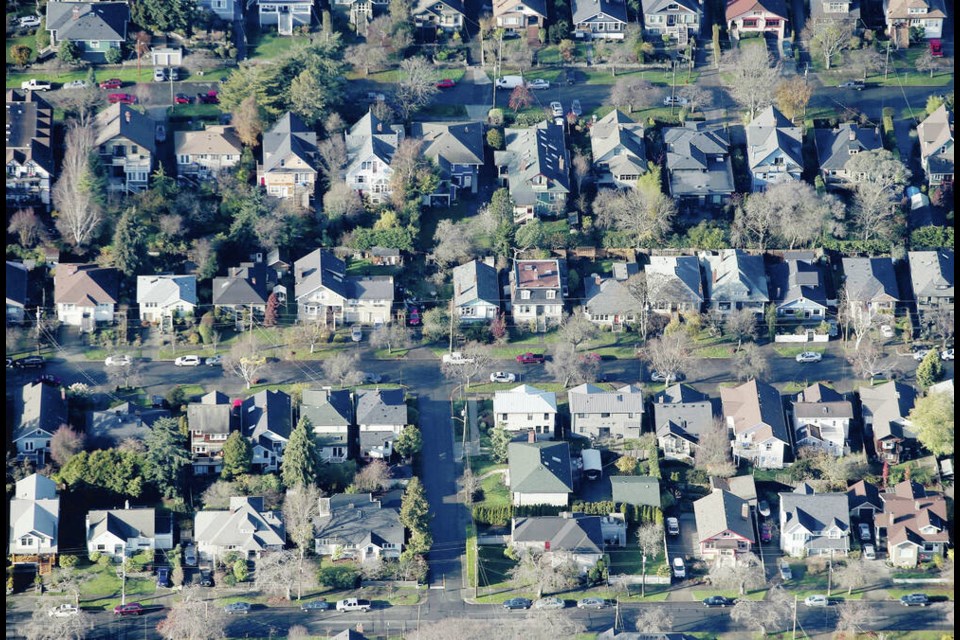As the region welcomes many new mayors and councillors to council chambers, residents struggling with housing costs may feel cautiously optimistic that local governments will act on their concerns.
All mayors in the Greater Victoria core — Esquimalt, Oak Bay, Saanich and Victoria — pledged to work with their staff, community, and senior governments to embrace a human rights approach to resolving the housing crisis at the Homes for All Community Assembly organized by Greater Victoria Acting Together.
Human rights standards guide governments to prioritize housing for those most in need: unhoused people first, then those at risk of homelessness.
Embracing a human rights approach to the housing crisis positions Greater Victoria municipalities to partner with the federal government, and – critically – to attract funding from senior governments.
The Government of Canada recognized the right to housing in the 2019 National Housing Strategy Act. The National Housing Strategy has a target to remove 530,000 families from housing need and to reduce chronic homelessness by 50 per cent by 2029.
At the local level, the board of the Greater Victoria Coalition to End Homelessness recently embraced a renewed commitment to end mass homelessness in our region with an updated mission to achieve “functional zero” homelessness by 2030.
These timelines require immediate action and a massive uptick in the construction of subsidized social housing. It is not uncommon for new non-profit rental buildings to take five or six years from concept to occupation in our region, so we must spearhead new housing pronto if we are to have any chance to meet both local and national timelines for ending mass homelessness.
But how much and what cost of housing is needed to ensure all residents of Greater Victoria have access to adequate, appropriate, affordable housing?
The Community Social Planning Council recently published data-driven answers to this important question.
In a recent report, Filling the gap: Analytics to support the realization of housing for all in Greater Victoria, we learn there is an existing deficit of nearly 3,500 homes that rent for $375 each month. And a larger shortage of 14,200 homes that rent for less than $875 monthly.
The shortage of deeply affordable homes has deadly impacts on people trying to prevent or escape their own homelessness. Each month in Victoria people are discharged from residential treatment facilities, women’s transition homes and corrections facilities into homelessness.
This is terrible for an individual’s life chances and utter madness from a public policy perspective. How effective do you imagine any of those programs are when at the end of the program, people are shuttled into homelessness?
There is no way to fill the need for homes that cost less than $875 per month without a massive increase in the production of social housing.
And readers should know that social housing is mixed-income housing – providing homes not just for low-income individuals but also for families with annual incomes up to $120,000. An accelerated buildup of social housing will alleviate the shortages of housing for all incomes in our community.
As interest rates increase, for-profit rental projects are coming off the table. We need governments to bring forth bold policies to escalate the production of non-profit rentals and to commit to ensuring construction continues our community’s needs are met.
To ramp up non-profit housing production, Greater Victoria Acting Together will look to councils to develop aggressive land-acquisition programs, accelerate approvals for non-profit and co-operative housing proposals, and increase funding for an expanded and more effective regional housing first program.
You can read the full Homes for All platform on the Greater Victoria Acting Together website.
Chaland was the lead author of three recent reports about the housing crisis in Greater Victoria: COVID 19: The Beginning of the End of Homelessness, Drivers of Homelessness: Findings for Action, and Filling the Gap: analytics to support housing for all in Greater Victoria. Beak is the co-lead of Greater Victoria Acting Together’s Housing Team.
>>> To comment on this article, write a letter to the editor: [email protected]



